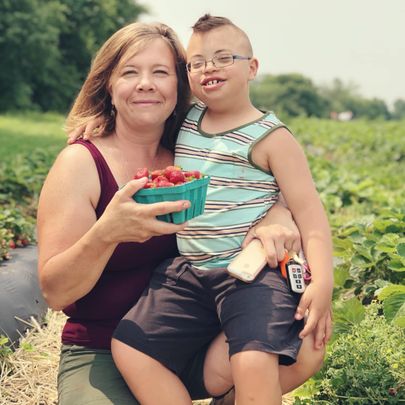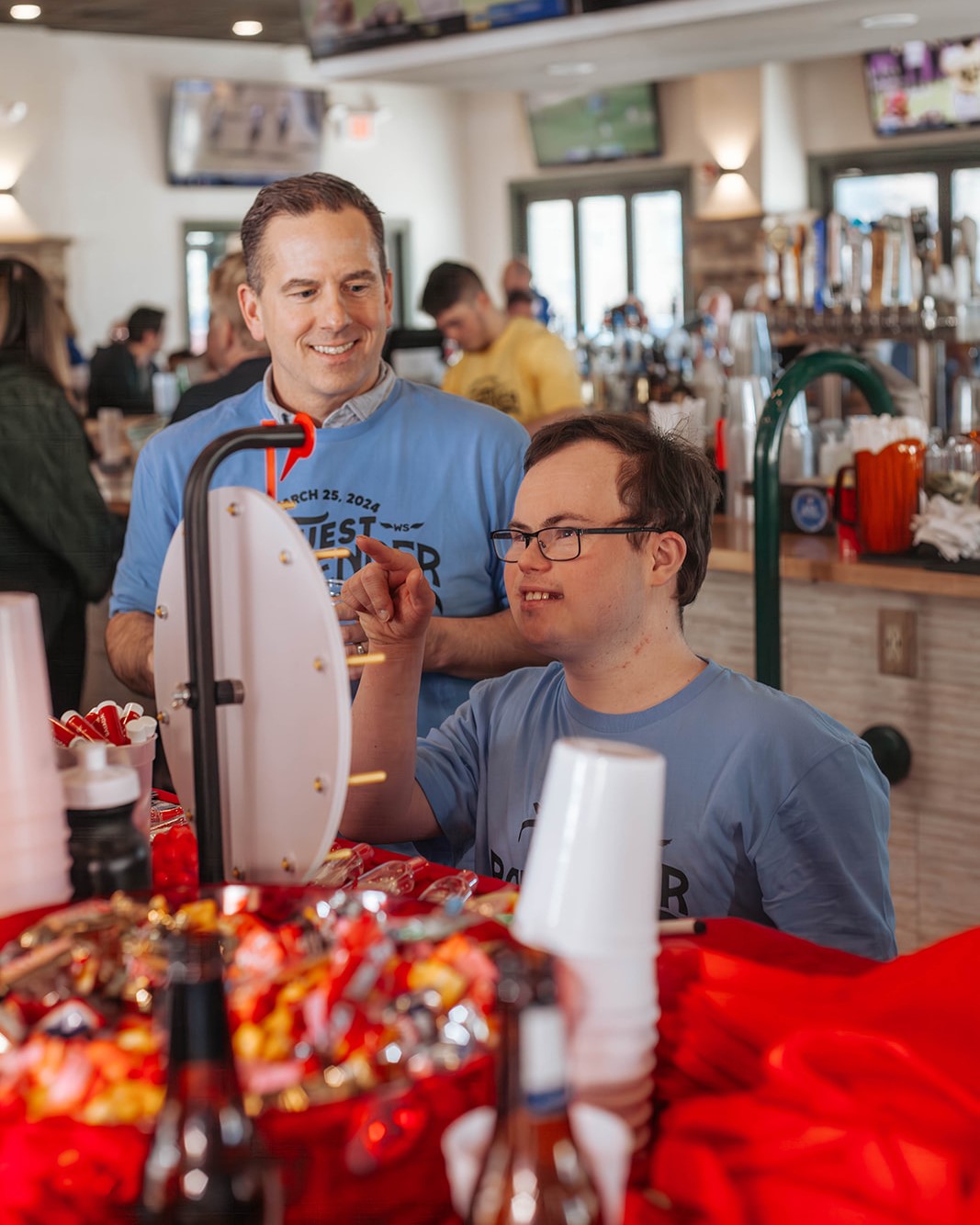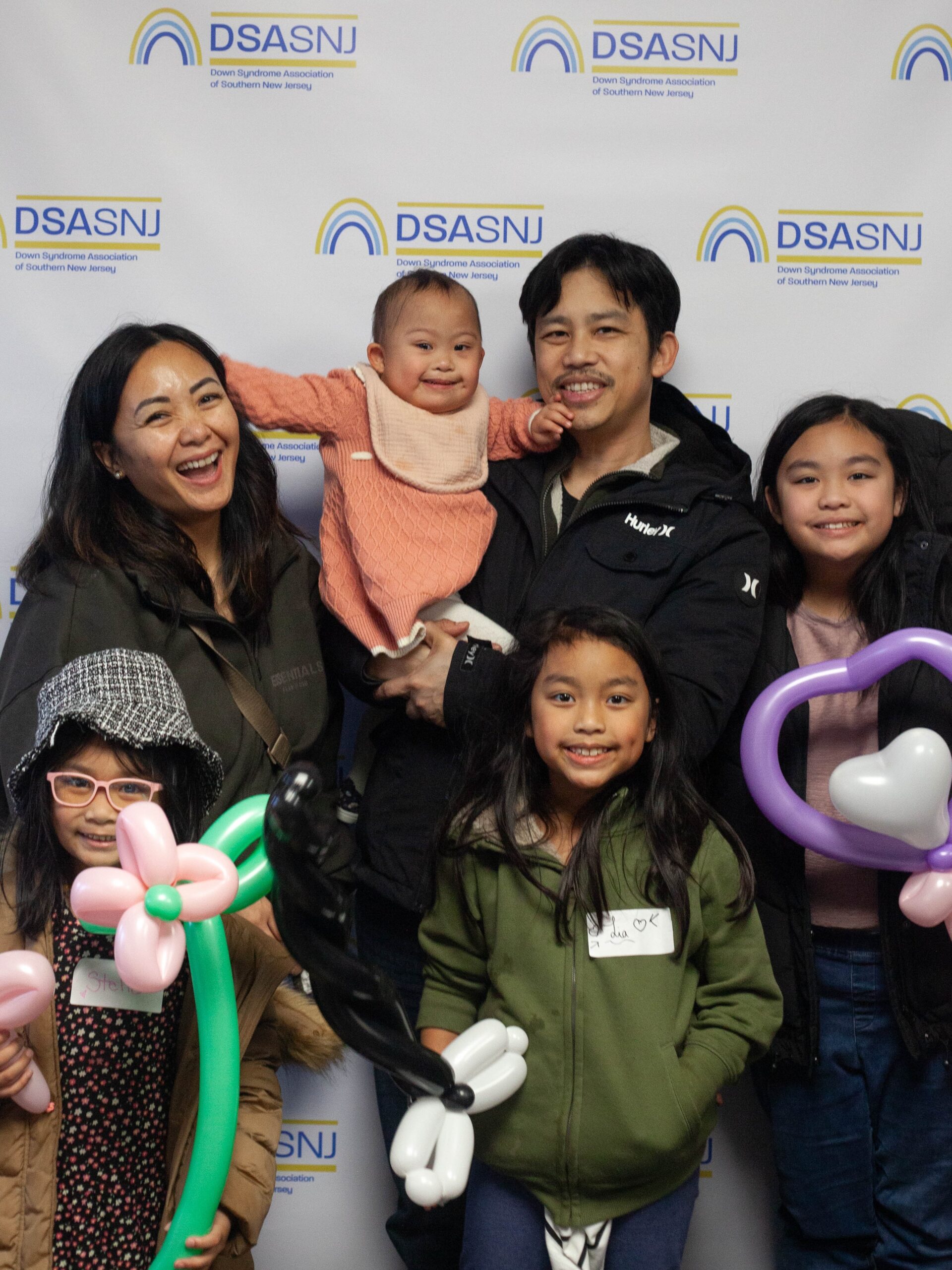When the Down Syndrome Association of Southern New Jersey (DSASNJ) was formed in 2003, the small group of founding parents were focused on supporting their young children with Down syndrome. As those children have grown and blossomed over 20 years, DSASNJ has grown to service individuals and families from the prenatal stage to adulthood. The organization proudly serves over 120 families across the Southern New Jersey region.
Earlier this month, GLOBAL Vice President – Strategic Alliances, David Tolleson, met with Terri Bank and Dria Law, Co-Executive Directors of the DSASNJ, to discuss their work to build community and why they strongly support GLOBAL’s mission and resources, including the Medical Care Guidelines for Adults with Down Syndrome.
DAVID: Thank you for taking time out of your busy day to speak with me today. So excited to learn more about your important work. My first question is, how did you end up running a Down syndrome organization?
TERRI: My son was born in 2001. There was another group in the area that is still around and we’re very friendly with them, but at the time that group was focused on young teenagers and they really weren’t doing anything for young children. So, in 2003, 4 of us – all moms – started KIIDS. I started as co-chair but have only been off the board for 2 years since then.

DAVID: And remind me what does KIIDS stands for?
TERRI: Knowledge & Information about Individuals with Down Syndrome, though we’ve recently changed the name.
DRIA: I founded KIIDS when I moved to New Jersey in 2011, when my daughter with Down syndrome was heading into kindergarten. It was the first time since she was born that I really had the chance to take a breath, get my head above water, and take advantage of all the great opportunities and activities for her. Eventually, I found my way to KIIDS. Terri and I really clicked and we’ve been co-chairing for years.
DAVID: Tell us about your decision to change your name from KIIDS to DSANJ.
DRIA: It’s something that we kicked around for a couple of years. Going back to when I moved here, it took me awhile finding KIIDS. It wasn’t the easiest acronym to understand. During the pandemic, Terri and I were kicking around how to move from more of a social group to a professional nonprofit. Our constituent group had grown and widened. The children we started with are now young adults. We needed to have a name that better reflects what we do and that is easier for people to find and recognize what we do. It also helps with grant applications. The new name fits the protocol used by most groups nationwide and is easier to find online. We took the opportunity to have a designer fully overhaul our website, to make it much more usable and robust.
DAVID: Is your focus on adults as your population is growing part of the reason you and your board wanted to support the GLOBAL Adult Guidelines with a multi-year pledge?
DRIA: Yes, definitely. Our ages have widened so much. We had to stop and step back for a moment and realize that we have a lot of members over age 20, so we need to expand our activities and what we offer. We also partner with Nancy Hennefer and BUDS, because we have a lot of overlap and they have quite a significant adult population.
TERRI: As we’re doing more partnership activities with BUDS, we’re seeing a lot more people in their 30’s. We don’t know everything that’s going to be needed as this population ages, because there’s not a lot of research or clinical knowledge out there.

DAVID: You’re right. There’s only about a dozen adult Down syndrome clinics in the country, and most of those have severely limited hours or won’t see patients from out of state. GLOBAL has created and is continuing to add medical areas to the guidelines. Today, any healthcare provider anywhere can go online and find our peer-reviewed, evidence-based resource and understand how to better serve their patients with Down syndrome.
TERRI: It is so needed.
DRIA: We’ve pushed the Guidelines out. For those families who are paying attention and are aware, I’m sure it’s very helpful. We want to get it into more hands.
DAVID: Beyond the Adult Guidelines, how does GLOBAL’s research and medical care work make a difference to families in your community?
DRIA: We have a group that it definitely makes a difference for and a group that we’ve yet to reach. I remember the first time I went to the GLOBAL Research & Medical Care Roundtable at the NDSC Convention – I was blown away with the information and resources and depth of knowledge. More and more of our families have gone to the Roundtable over the years and that has been their introduction to GLOBAL. Those are the families that attend the webinars and read the materials and benefit. For those who don’t attend, they’re missing out.
TERRI: I think a lot of people don’t look for information until they need it, which is probably human nature.
DAVID: So many people get their information from social media these days. One thing you might want to consider is when you see a post about the Adult Guidelines, the Prenatal & Newborn Pamphlet, the various research studies, or other information you’d like your families to see, share it on your page.

DRIA: When I think about what had the biggest impact – what put GLOBAL on the map for our families – it was the Congressional hearing and Frank Stephens’ testimony (https://www.youtube.com/watch?v=D_DfwMxEwDM). Many of our families had heard of GLOBAL and knew about GLOBAL in a general sense. But Frank’s testimony was so impactful. It really brought the message home to a lot of our families that research is crucial. Hearing “self-advocate”, “congressional hearing”, “NIH”, and some of the funding numbers discussed was really impactful.
DAVID: Frank did an amazing job. We’re blessed to have him as a member of our Board. My last question is, do you have any advice to share parents – either new or those with a bit more experience?
TERRI: My biggest advice for parents is just get involved. Go to the events. Talk to new parents and old parents because that’s how we learn. We learn so much just by communicating with other parents through every stage of life. I’ve always learned by talking to someone who is a year or two ahead of me on this journey.
DRIA: Get involved and know there’s an amazing community out there for you. It’s so easy to stay in your own bubble, especially in those early, scary days. Get involved with other families. Check out the groups that are there and see what’s a good fit for your family. There are so many resources out there, like GLOBAL, and in the wider disability community, too. You’ll find reassurance, acceptance, and understanding. One of our goals with DSASNJ is to broaden the network of disability rights organizations we work with beyond the Down syndrome community. It really helps when working with school districts and the community.
DAVID: Particularly when you’re talking about advocacy on the state and federal level. Any meaningful change that has occurred over the years in disability rights has been by people working together. Thank you both for your time. You’re doing amazing things and paying it forward. It’s like you said, Terri – we’re now the more “seasoned” parents, but we learned it from those who came before us and now we need to pass it on to those coming behind us.
TERRI: When my son, Michael, was born, I was told that I was going to meet the best people and I thought, “I don’t need anymore friends,” but now I don’t know what I would do without this community.
 Resumen
Resumen



 Experience our inspirational and groundbreaking videos and photos. Our children and self-advocates are beautiful AND brilliant!
Experience our inspirational and groundbreaking videos and photos. Our children and self-advocates are beautiful AND brilliant! Make sure your local Representatives are on the Congressional Down Syndrome Task Force.
Make sure your local Representatives are on the Congressional Down Syndrome Task Force.